It very well could be a challenging next few years for school districts all across Long Island, let alone the North Shore. Districts await with bated breath any announcement from New York State regarding any new mandates, let alone the announcement for when schools could potentially let students back into buildings. Not to mention, the potential drastic cuts in state aid due to major state budget shortfalls. Meanwhile, Gov. Andrew Cuomo (D) has set up committees headed by billionaire Bill Gates and others to look at “reimagining” education, though what that will mean down the line could have major impacts on school district operations.
With that, only two of four local school districts have contested elections, but all still face similar issues. Given these challenges, The Village Beacon Record has given all board candidates the chance to say what challenges they see ahead for their districts.
For more information about districts’ 2020-21 budgets, visit www.tbrnewsmedia.com/tag/school-budgets.
Shoreham-Wading River
Three incumbents are looking to return to their seats at the SWR school board, and no challengers have presented themselves to contest those positions this year. Each seat is for a three-year term.
 Michael Lewis
Michael Lewis
Current board president Michael Lewis has been on the board for four years, and with two children in the district, he said that while the position is stressful, “It is very rewarding to see the board’s impact when students attend our meetings and display their accolades, achievements and success.”
Lewis, a senior project manager for an architectural firm on Long Island, said the biggest concerns for the future are the potential for state aid cuts and for what he called “unfunded mandates” caused by new physical distancing regulations.
What may help the district into the future is what Lewis called their “very healthy” capital reserves, which may allow for more flexibility in uncertain and potentially lean times.
“Having a very supportive community which has consistently approved our annual budget, a four-year average growth of only 1.52%, is a huge advantage as well.” he said.
Lewis said he is hopeful for full student attendance of buildings come the start of fall, but still the district has purchased Chromebooks for all elementary students, with secondary school students already having them.
“Our administrators have offered multiple professional development opportunities which a majority of our teaching staff has taken advantage of,” he said. ”There is always room for improvement in everything we do as a district.”
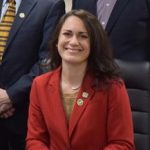 Katie Andersen
Katie Andersen
Katie Andersen, who is finishing her first term as trustee on the SWR BOE, said difficulties the district will face in the coming years will be issues of mental health and gaps in student knowledge from distance learning.
Andersen, who is vice president of the board, said she has several children in the district, including a seventh-grader, fourth-grader, first-grader, and a brother who is a junior in high school. She is a member of several committees and is involved with the PTA and SEPTA. Outside of work on the board, she is a marketing consultant.
“I’m deeply committed to serving our community in this role,” she said. “In spite of the challenges and extensive donation of time, I do enjoy it.”
Though she said the most significant issue is students’ emotional well-being, she added the district will also be facing issues from complying with new unfunded state mandates, such as having to provide distance learning on the fly, that will be a challenge “while becoming increasingly creative at stretching every dollar so that we can continue to enhance our programming and move forward with the maintenance projects for our buildings,” she added.
While Andersen said the district will continue to improve upon lessons taught by rolling out distance learning, she felt the district did everything it could with what it had.
“The resources provided to students and parents, the ongoing professional development provided to teachers, and the tireless efforts of our administration and staff has been nothing less than remarkable,” she said. “Our district will continue to provide for the needs of our students, staff and families as creatively as possible under these less than ideal circumstances … A growth mindset isn’t just something we teach our children — it’s at the heart of everything we do here in SWR.”
 Henry Perez
Henry Perez
With his third year on the board under his belt, Henry Perez, a mechanical engineer for a national architectural/engineering firm and near 20-year Shoreham resident, said the district is trying to be fiscally responsible despite the current hardships.
“The current pandemic will impact New York State’s financial ability to support local education,” Perez said. “I expect reduced funding from Albany in the next few years.”
He added the pandemic will likely change how students are taught in the future, and with the fear of additional unfunded mandates, it will mean a greater challenge to the district as it attempts to continue its current levels of education.
“Shoreham-Wading River is already positioned to continue providing this level of education,” he said. “However, going forward requires careful planning to navigate these changing times. Listening to the community and receiving timely feedback in this time of social distancing is extremely important.”
Perez, who has two children in the district, said distance learning remains a complicated topic. The biggest issue is despite current efforts that he and others in the district are proud of, “it requires months of planning and feedback to develop and fine-tune a distance learning platform.”
However, the district has made major strides with its virtual classroom through its Chromebook initiative. Rolling out the distance learning structure in “a matter of days” showed the district’s quick response time, and feedback helped fine-tune the services.
“I am confident we will only see improvements,” he said. “It seems in this day and age many expect things to be perfect from day one, myself included. However, it’s this expectation that results in change. It is change that brings opportunity.”
Rocky Point
The Rocky Point Union Free School District has three candidates running for two at-large seats for the 2020-21 school year. Each seat is for a three-year term. This year two incumbents and one newcomer are looking for the public’s nod.
 Sean Callahan
Sean Callahan
Sean Callahan, the current board vice president, has sat on the BOE for six years. Himself a labor lawyer specializing in education and school issues, he said he and the board have spent the past years “transforming” the district by hiring people in central office and in principal positions, adding the board has worked to maintain balanced budgets and improve communication between the board, administration, staff and community.
“I am running once again to continue the transformation into the next generation,” he said.
Callahan, a Rocky Point resident since 1975 and father of three sons, two graduates and one in middle school, said he has experience in school auditing districts. He added he is also a certified school business official. On the local side, he has been a member of the Rocky Point civic, PTA and was a 10-year member of the North Shore Little League board of trustees.
As for upcoming issues due to the pandemic, the longtime resident said the board has already worked, even prior to schools closing, to tighten the belt. This year with a tax levy cap set at 0.08 percent and having prepaid part of their bonds of over a million dollars, which meant little had to be changed due to the pandemic with no loss of educational programming. While there is a chance state aid can be cut down the line, he said his day job offers him insight others may not have.
“During this pandemic through my employment I am privy to many internal discussions from the governor’s office as well as having access to many other school districts,” he said. “This enables our district to learn from others’ mistakes and borrow their ideas.”
 Jessica Ward
Jessica Ward
Trustee Jessica Ward has been on the board for one year, having run last year to finish the term of another trustee who had resigned.
She works at the William Floyd School District as an office assistant at William Floyd High School, which she said gives her insight into the ground-level view of what districts are having to do during this unfortunate time. She has four children who attend Rocky Point schools at every level from elementary to high school.
She sees the issues that districts all across the island will face in the near future as maintaining programming despite potential drastic cuts in state aid, following the guidelines for and ensuring the health and safety of staff and students in the aid of social distancing and trying to create a balanced budget to facilitate all that. Districts also face the challenge of ensuring equal access to technology for all students in the event that distance learning becomes more cemented in the future.
“We need to make sure that we are using our resources wisely, examining existing contracts to ensure fiscal responsibility, thinking outside the box in terms of schedules and extra-curricular activities, researching grant opportunities for technology needs, and partnering with other districts and Eastern Suffolk BOCES for staff training and curriculum needs,” Ward said.
With that, she added she feels Rocky Point has done an “excellent job” in rolling out distance learning. The district identified students in need of electronic devices in their homes, and the English as a Second Language department “ensured non-English-speaking students received the help and support they needed.
Some teachers in the district have been presenting audio and video lessons, and the guidance department, she said, has been reaching out to students who need additional assistance.
“There is always room for improvement though, and in the future, I would like to see every student at Rocky Point receive a Chromebook or device to assist in distance learning should we need to continue this in the 2020-21 school year,” she said. “I would also like to see all of our teachers doing some form of live interaction with our students via Google Meet or another platform in the future.”
 Kellyann Imeidopf
Kellyann Imeidopf
A 10 and a quarter-year resident in the Rocky Point school district, Kellyann Imeidopf said her two main jobs are as a real estate salesperson and as a mother. She has four students in the district, with one in kindergarten, with the others in first, eighth and 10th grade. She said she decided to run because, “I ultimately have the children’s interest at heart. I want to be part of the team that shapes how our children get ready to become productive and active community members themselves. I want to create a shared vision for the future of education.”
She said the main challenges the district will face in the coming years will be regarding the mental health of both children and staff, and how they will “maintain social distance, but not emotional distance.”
She said there will be setbacks from online learning, adding there needs to be a look at how to adapt the physical classroom to a virtual environment that can both engage children without leaning on parents. She said she has other ideas for how to prepare seniors heading off for college, even though seniors don’t have the same access to guidance departments they had when students were in school buildings.
In terms of distance learning, she said the district is working with the resources it had on hand, and both teachers and parents are “all dealing with this transition in not only professional ways, but personal, social-emotional and economic ways. I believe every staff member has our children’s best intentions at heart.”
She added the district can come together as a team to develop ways to ease the burdens on parents.
Miller Place
The Miller Place School District has two seats up for election, and two incumbents are looking to fill them. Trustees Richard Panico and Lisa Reitan are the only candidates asked to be put on the ballot.
Both could not be reached before press time. The two candidates will be included in a follow up article if they respond before the June 4 issue of the Village Beacon Record.
Mount Sinai
This year, Mount Sinai voters will be asked to cast ballots for three at-large board seats with a total of four candidates running. Three incumbents and one newcomer are looking to fill the at-large seats for the next three years.
 Edward Law
Edward Law
Ed Law, also a nine-year member of the Mount Sinai BOE, said he has decided to run again because with the district facing unprecedented challenges from the COVID-19 pandemic, the district will need to navigate the pandemic and continue offering the same level of education. That, he said, will need experienced hands.
“During my time on the board of education, we’ve been able to improve on the objective metrics of success for our district as well as providing for the specific needs of students who have developmental delays and disabilities,” he said. “Our track record of success of our students earning admission to competitive colleges and universities has been improving year over year while our district has expanded choices and options for those who choose career over college. We need to continue to improve on these.”
Law, who works full time as a management consultant, said the biggest challenge for the district will be in potential loss in state aid. The ongoing crisis might also result in other unfunded mandates, but he called those “nothing new.”
He added that the district has crafted its 2020-21 budget with consideration toward potential state aid cuts, while still keeping the tax levy increase minimal.
“As a district, we have evaluated every line item of our operating budget to ensure that we can provide continuity of our program,” he said. “This current scenario has been reflected in our proposed budget.”
In terms of the future of education at Mount Sinai, Law, who has one child in the middle school and two recent graduates, said that the district has tried to address concerns with how the district is doing distance learning. Though it’s hard to tell what may be in the future, the district must plan for everything.
“We have had a few issues raised by parents and we have it addressed directly by the teacher and principal,” he said. “Since we don’t know yet whether in person instruction will be able to be provided in the fall as per Centers for Disease Control [and Prevention] guidelines and the governor’s directives, we need to continue to improve on how instruction is being provided, and have a plan for remote/distance learning in the new school year, whether through existing technology solutions or alternate technology platforms.”
 Peter Van Middelem
Peter Van Middelem
With six years already on the job, trustee Peter Van Middlem said the district must try to maintain its high standards of academics and other programming while facing potential financial challenges from the pandemic.
Van Middelem is a retired New York City Fire Department member and current financial auditor in various Suffolk school districts. Among his three children, his son, Jacob, is a junior at the high school.
“As a lifelong resident who attended Mount Sinai Schools and a 35-year volunteer of the Mount Sinai Fire Department, service to this community is my guiding force,” he said.
He cited the district’s efforts already with hiring a teacher for the school’s robotics program, a new special education director and the new elementary school principal he described as a “literacy expert,” along with the implementation of Columbia Teacher College Reading and Writing programs for middle and elementary schools. He cited his and other members ability to deal with crises, including new security efforts such as armed guards and perimeter fencing.
However, now with the ongoing pandemic, he said the district’s efforts to generate savings through the district’s retirement incentive program and use of the capital plan to make improvements to facilities are important.
He said the district must also be there to support community members facing financial hardships in this time.
“Our students and their families potentially will experience financial difficulties and we will be there to help any way we can to support them,” he said.
In terms of the future of learning at Mount Sinai, he said the district has done well with limited New York State guidance, and will continue to improve on distance learning.
“With basic at best guidance from New York State, our teachers and admin have had to create a new learning environment,” he said. “The vast majority of our staff have done a great job considering the circumstances. We can always do better and will strive for that goal.”
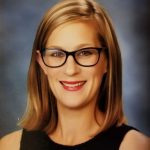 Karen Pitka
Karen Pitka
Karen Pitka, a Mount Sinai resident since 2011, works as a fourth-grade teacher and said she can bring that experience in education matters, especially at the youngest grade levels, to help Mount Sinai in these difficult times.
Pitka said she has taught second and fifth grade as well. While she has considered running for school board before, she said the pandemic has made the choice all the more clear.
“My extensive experience in education allows me to be well versed in what our children need,” she said. “Our youngest children will suffer greatly from the closure of schools during this unprecedented time and I feel I will be an asset to the community and will be able to offer the proper guidance being that I am an elementary school teacher and mother of young children.”
Having the proper protocol for distance learning is one of the most important issues districts will face. Pitka said districts need a “proper plan” for distance learning should students not return to school buildings in September. Plans, she said, need to adhere to the Free Appropriate Public Education. Individuals with Disabilities Education Act, which needs to take into account the type of technology students have at home or have at their disposal so all can have access.
However, she said the district has done everything it could with the time it had to create a distance learning experience. Still, now that the district has had time to collect its bearings, she said Mount Sinai should look at programs that can offer a similar experience to all users.
“Moving forward, now that we know we need to be prepared for circumstances such as these, I feel it would behoove the district to look at their plan for 1:1 student devices and ensure that a developmentally appropriate online learning platform is put into place for distance learning,” she said.
She added the district will face the challenge of an academic gap caused by school closures, and Mount Sinai should look into a specific mental health program to assist students with coping with the “new normal.”
“More pull-out remediation services may need to be offered and class sizes will need to be smaller in order to provide direct remediation from the classroom teacher,” she said.
In terms of finances, Pitka said if state aid changes the district should look at “every single line in the budget and decide which areas are absolutely critical to the development of all Mount Sinai students from the elementary level through the high school level.”
 Robert Sweeney
Robert Sweeney
Robert Sweeney, the current BOE president, has been on the board for nine years. Himself the managing partner of a law firm, he said he has the longtime and intimate experience of the school district, from both the administration side and from the student’s perspective.
Sweeney, who currently has two children in the district plus one who’s graduated, said this year’s budget was modified in response to the pandemic. He said he advocated for the lower tax levy increase of just over 1 percent, a full percentage point below the tax cap, especially since many residents will be hard pressed financially in the coming months. He added that the board has helped negotiate teacher retirement plans that can reduce the budget in the future without making cuts. Knowing when people will be retiring and enrollment numbers, he said, allows them to know how to staff going from year to year.
“There’s a balancing act of keeping the programs and keeping teachers in place,” he said. “We really tried to focus on a point where it makes sense for the district but some people may have jobs lost, lost a second income or have seen payroll reductions … We can’t just keep going on as if nothing’s happened.”
He also cited use of the capital reserves to work on projects like refinishing the high school roof as another example of the district trying to maintain its infrastructure without laying the burden on taxpayers.
With the potential for state aid cuts looming somewhere later into the year, the board president said the budget was designed for some amount of flexibility. He added the district is dedicated to long-term strategic planning to think several years ahead.
“I don’t know of any school district that could survive, as is, with a 20 percent drop in state aid — that could be huge,” he said. “We’ve drawn a bit more out of fund balance — that’s what it’s there for — and that will take us to a position next year.”
Sweeney called the term distance learning “a misnomer,” adding that programs looked different mid-March into April and then into May. Schools will have to remain flexible, he said, in case months down the road they will have students in schools, then have to reduce attendance in schools should the state require it. Most importantly, though, is to regain the social and emotional interaction between students and teachers.
“It is providing support to the students, I do not think of it as distance learning,” he said. “The classroom teacher is important not just because of the material and the textbook, but because of the social and important interaction that the teacher has with the students. We have to make sure that we have classroom teaching in some form. Going forward every building and grade will be different.”



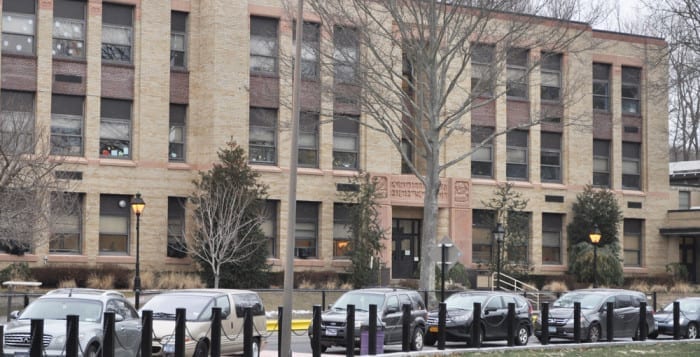
 Shannon Handley has lived with her family in Port Jefferson for 22 years.
Shannon Handley has lived with her family in Port Jefferson for 22 years.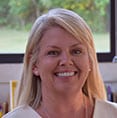 Rene Tidwell has been a Port Jefferson resident for 20 years.
Rene Tidwell has been a Port Jefferson resident for 20 years. Ryan Walker is running for reelection with the board.
Ryan Walker is running for reelection with the board. Tracy Zamek is seeking a third term as a trustee on the Port Jefferson school board.
Tracy Zamek is seeking a third term as a trustee on the Port Jefferson school board.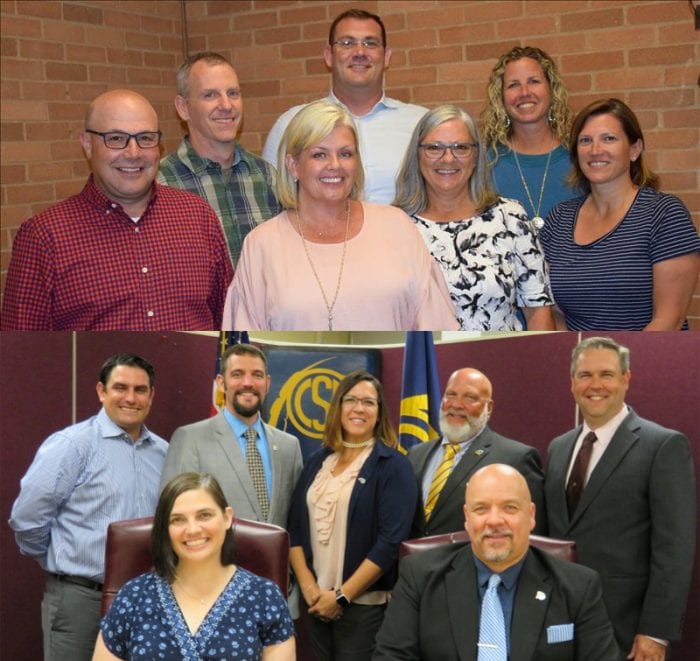
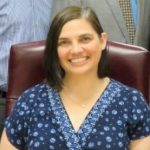 Alexandra Gordon
Alexandra Gordon James Sanchez
James Sanchez David Keegan
David Keegan Ravi Singh
Ravi Singh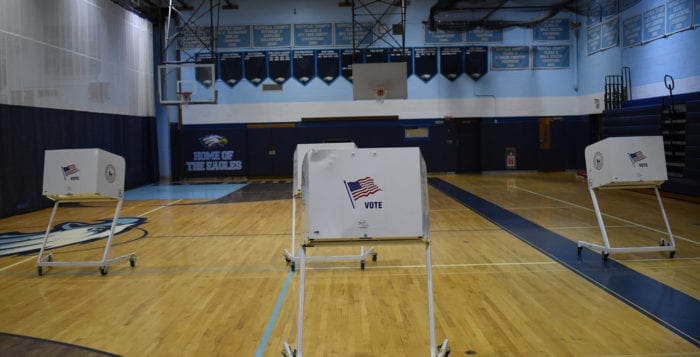
 Michael Lewis
Michael Lewis Katie Andersen
Katie Andersen Henry Perez
Henry Perez Sean Callahan
Sean Callahan Jessica Ward
Jessica Ward Kellyann Imeidopf
Kellyann Imeidopf Edward Law
Edward Law Peter Van Middelem
Peter Van Middelem Karen Pitka
Karen Pitka Robert Sweeney
Robert Sweeney


